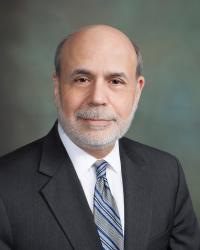

Research
BPEA | 1996 No. 2

1996, No. 2
THERE IS A long tradition in monetary economics of searching for a
single policy variable-perhaps a monetary aggregate, perhaps an interest
rate-that is more or less controlled by policy and stably related
to economic activity. Whether the variable is conceived of as an indicator
of policy or a measure of policy stance, correlations between the
variable and macroeconomic time series are taken to reflect the effects
of monetary policy. Conditions for the existence of such a variable are
stringent. Essentially, policy choices must evolve autonomously, independent
of economic conditions. Even the harshest critics of monetary
authorities would not maintain that policy decisions are unrelated
to the economy. In this paper we extend a line of work that builds on a
venerable economic tradition to emphasize the need to specify and
estimate behavioral relationships for policy. The estimated relationships
separate the regular response of policy to the economy from the response
of the economy to policy, producing a more accurate measure
of the effects of policy changes.